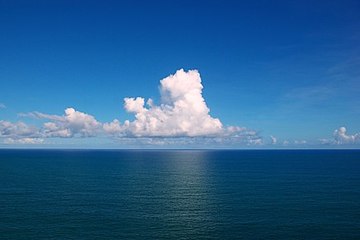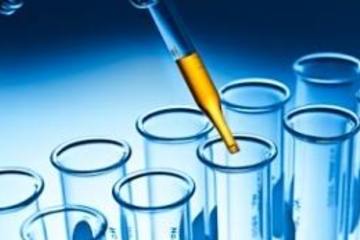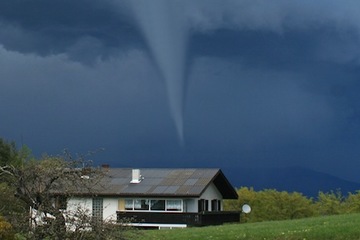Browse
Posted on: #iteachmsu

PEDAGOGICAL DESIGN
Genetics is the study of heredity. Heredity is a biological process where a parent passes for child
tetst Genetics is the study of heredity. Heredity is a biological process where a parent passes certain genes onto their children or offspring
Genetics is the study of heredity. Heredity is a biological process where a parent passes certain genes onto their children or offspring Genetics is the study of heredity. Heredity is a biological process where a parent passes certain genes onto their children or offspringGenetics is the study of heredity. Heredity is a biological process where a parent passes certain genes onto their children or offspring
Genetics is the study of heredity. Heredity is a biological process where a parent passes certain genes onto their children or offspring Genetics is the study of heredity. Heredity is a biological process where a parent passes certain genes onto their children or offspringGenetics is the study of heredity. Heredity is a biological process where a parent passes certain genes onto their children or offspring
Authored by:
Chathuri

Posted on: #iteachmsu


Genetics is the study of heredity. Heredity is a biological process where a parent passes for child
tetst Genetics is the study of heredity. Heredity is a biologi...
Authored by:
PEDAGOGICAL DESIGN
Thursday, Oct 24, 2019
Posted on: #iteachmsu

PEDAGOGICAL DESIGN
The International Cricket Council is the global governing bo
The International Cricket Council is the global governing body of cricket. It was founded as the Imperia
Authored by:
Chathurit
Posted on: #iteachmsu

The International Cricket Council is the global governing bo
The International Cricket Council is the global governing body of c...
Authored by:
PEDAGOGICAL DESIGN
Thursday, Oct 24, 2019
Posted on: #iteachmsu

PEDAGOGICAL DESIGN
venture capital oppnnnnnnn venture capital oppnnnnnnn venk
venture capital oppnnnnnnn
Authored by:
Chathurityuiop
Posted on: #iteachmsu

venture capital oppnnnnnnn venture capital oppnnnnnnn venk
venture capital oppnnnnnnn
Authored by:
PEDAGOGICAL DESIGN
Thursday, Oct 24, 2019
Posted on: #iteachmsu

venture capital oppnnnnnnn 502 venture capital oppnnnnnnn 50
venture capital oppnnnnnnn 502
Authored by:
Chathurityuioprt
Posted on: #iteachmsu

venture capital oppnnnnnnn 502 venture capital oppnnnnnnn 50
venture capital oppnnnnnnn 502
Authored by:
Thursday, Oct 24, 2019
Posted on: #iteachmsu

new test article on browse overlapping issues with lengthy titles
Scientists attribute the global warming trend observed since the mid-20th century to the human expansion of the "greenhouse effect"1 — warming that results when the atmosphere traps heat radiating from Earth toward space.
Certain gases in the atmosphere block heat from escaping. Long-lived gases that remain semi-permanently in the atmosphere and do not respond physically or chemically to changes in temperature are described as "forcing" climate change. Gases, such as water vapor, which respond physically or chemically to changes in temperature are seen as "feedbacks."
Scientists attribute the global warming trend observed since the mid-20th century to the human expansion of the "greenhouse effect"1 — warming that results when the atmosphere traps heat radiating from Earth toward space.
Certain gases in the atmosphere block heat from escaping. Long-lived gases that remain semi-permanently in the atmosphere and do not respond physically or chemically to changes in temperature are described as "forcing" climate change. Gases, such as water vapor, which respond physically or chemically to changes in temperature are seen as "feedbacks."
Certain gases in the atmosphere block heat from escaping. Long-lived gases that remain semi-permanently in the atmosphere and do not respond physically or chemically to changes in temperature are described as "forcing" climate change. Gases, such as water vapor, which respond physically or chemically to changes in temperature are seen as "feedbacks."
Scientists attribute the global warming trend observed since the mid-20th century to the human expansion of the "greenhouse effect"1 — warming that results when the atmosphere traps heat radiating from Earth toward space.
Certain gases in the atmosphere block heat from escaping. Long-lived gases that remain semi-permanently in the atmosphere and do not respond physically or chemically to changes in temperature are described as "forcing" climate change. Gases, such as water vapor, which respond physically or chemically to changes in temperature are seen as "feedbacks."
Authored by:
Chathuri

Posted on: #iteachmsu


new test article on browse overlapping issues with lengthy titles
Scientists attribute the global warming trend observed si...
Authored by:
Wednesday, Oct 23, 2019
Posted on: #iteachmsu

NAVIGATING CONTEXT
The Causes of Climate Change--- new article
Scientists attribute the global warming trend observed since the mid-20th century to the human expansion of the "greenhouse effect"1 — warming that results when the atmosphere traps heat radiating from Earth toward space.
Certain gases in the atmosphere block heat from escaping. Long-lived gases that remain semi-permanently in the atmosphere and do not respond physically or chemically to changes in temperature are described as "forcing" climate change. Gases, such as water vapor, which respond physically or chemically to changes in temperature are seen as "feedbacks."
Certain gases in the atmosphere block heat from escaping. Long-lived gases that remain semi-permanently in the atmosphere and do not respond physically or chemically to changes in temperature are described as "forcing" climate change. Gases, such as water vapor, which respond physically or chemically to changes in temperature are seen as "feedbacks."
Authored by:
chathuri

Posted on: #iteachmsu


The Causes of Climate Change--- new article
Scientists attribute the global warming trend observed si...
Authored by:
NAVIGATING CONTEXT
Wednesday, Oct 23, 2019
Posted on: #iteachmsu

NAVIGATING CONTEXT
Development of science - edit
The history of science is the study of the development of science and scientific knowledge, including both the natural and social sciences (the history of the arts and humanities is termed history of scholarship). Science is a body of empirical, theoretical, and practical knowledge about the natural world, produced by scientists who emphasize the observation, explanation, and prediction of real-world phenomena. Historiography of science, in contrast, studies the methods employed by historians of science.The history of science is the study of the development of science and scientific knowledge, including both the natural and social sciences (the history of the arts and humanities is termed history of scholarship). Science is a body of empirical, theoretical, and practical knowledge about the natural world, produced by scientists who emphasize the observation, explanation, and prediction of real-world phenomena. Historiography of science, in contrast, studies the methods employed by historians of science.
Authored by:
Chathuri hewapathirana

Posted on: #iteachmsu


Development of science - edit
The history of science is the study of the development of...
Authored by:
NAVIGATING CONTEXT
Wednesday, Oct 23, 2019
Posted on: #iteachmsu

NAVIGATING CONTEXT
Fundamental concepts in nanoscience and nanotechnology- New technology- new
Fundamental concepts in nanoscience and nanotechnology- New technology
test
test
Authored by:
Chathuri hewapathirana
Posted on: #iteachmsu

Fundamental concepts in nanoscience and nanotechnology- New technology- new
Fundamental concepts in nanoscience and nanotechnology- New technol...
Authored by:
NAVIGATING CONTEXT
Tuesday, Oct 22, 2019

